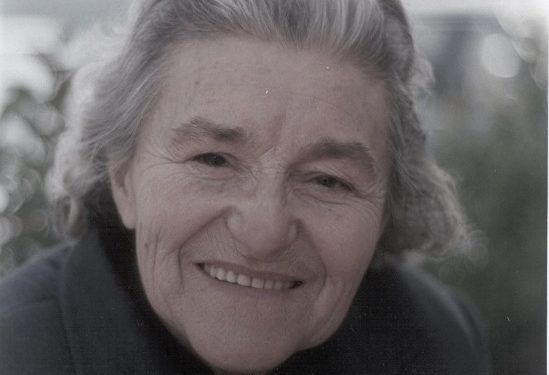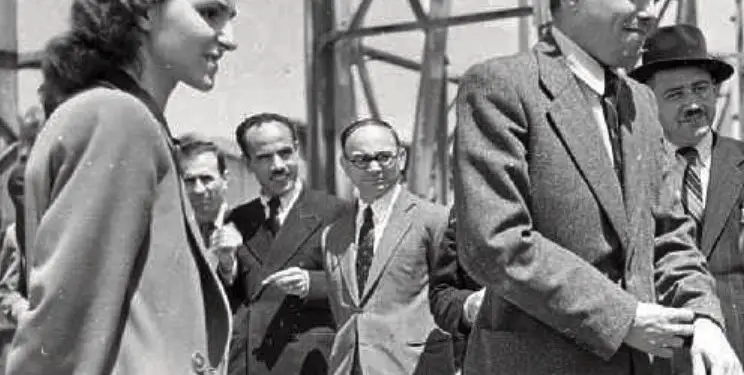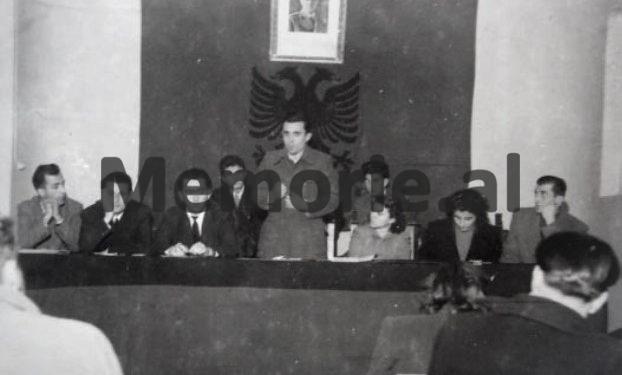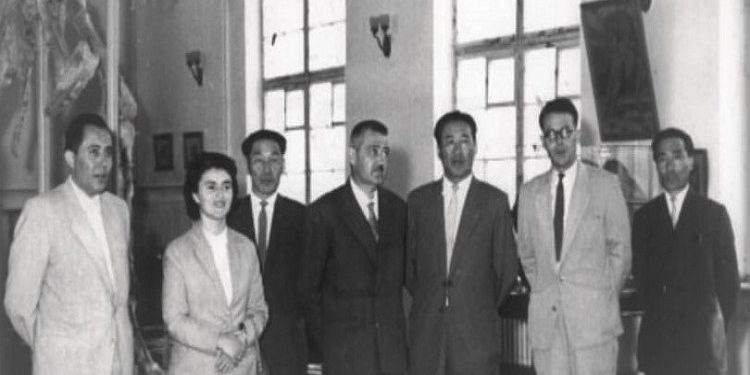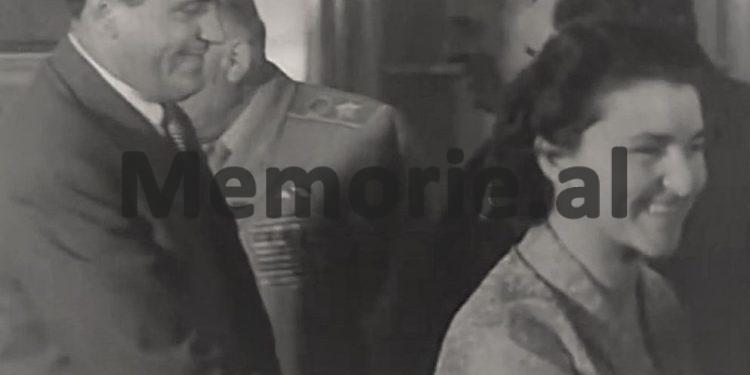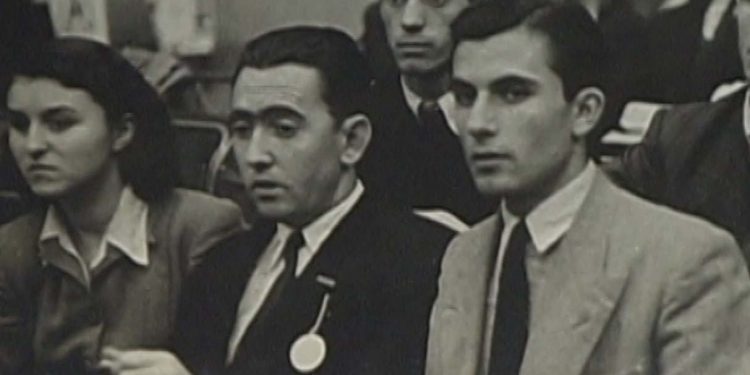The fourth part
Memorie.al / Liri Belishova, former senior official of the Albanian Youth and Communist Party, since the end of the War, member of the Political Bureau and secretary of the Central Committee of the PPSh, until 1961, who was then shot and was sentenced by Enver Hoxha, ending the family prisons and exiles for three decades in a row, in one of her interviews, shortly before she died, she would confess many episodes related to her life, but also all the privations that followed her family, until the collapse of the communist regime, at the end of 1990. In this long interview, she tells many other episodes related to the death of her ex-fiancé, Nako Spiru, but also many murders, imprisonments, exiles, and other persecutions that Enver Hoxha and the Albanian Communist Party undertook against their friends and comrades-in-arms, people and personalities with a lot of contribution during the War and after it.
Continues from last issue
Ms. Belishova, is it true that you had a different attitude than the official delegation in Moscow?
This I had, without going to China. But, officially, I did not express this attitude, on the contrary, I felt very confident when I agreed with all the things Enveri said. But when I started to have reservations, and especially after the 20th Congress, I was very afraid. I tried not to let it be understood that I had reservations in my discussions, in my behavior.
By all means, I tried to avoid the punishment, which would not only be for me, but would be for my whole family. Before I came to Moscow, Gogo Nushi had gone to Beijing, to the meeting of the World Federation of Trade Unions, and there they blocked the proceedings because the Chinese delegation demanded that their revolutionary terminology be included in the resolution: Class War, Dictatorship, Tooth-to-tooth fight with imperialism, etc., and other delegations opposed it.
The Chinese also worked with the communist parties, keeping them up all night and speaking against the revisionist treason. Gogua had sent a telegram to Enver. Enver, in fact, even according to the rules of the Communist Party, had to assemble the Bureau since the China articles came out. He had to put this to the table and say: “What position will we take”? Second, the radiogram came from Gogu, he still had to gather the Bureau, lay this thing out and tell me that I was going to China, what I needed to say to Gogo and what attitude I should take for myself.
He didn’t tell me anything, he just told me this, the last day when I went to greet him: “If the Chinese will talk to them about the disagreements they have with the Soviets, tell them that you choose the two big ones.” I told him, they will not tell us that we are a parliamentary delegation. He said; they will talk to you because he had the experience of Gogo, but I didn’t know anything. When I got to Beijing, Gogua, who was waiting at the airport, started talking to me in a very revolting way against the Chinese, even calling them thugs because he was also under the influence of the French and Italian delegation, headed by members of the Political Bureaus of the Communist Parties relevant.
And I tried to calm Gogo, I tried to calm the other members of the delegation that, when Chinese President Liu, in the first meeting he had with our delegation, and when Haxhi Lleshi was talking about Albania’s successes, he said: We have achieved these successes thanks to the work of our people, but also with the great help of our friends, primarily the Soviet Union, but also China. He interrupted the speech: “The work of your people”, he said “the help of the Soviet Union is not important”.
The pilgrim stood up and I held him. “We don’t separate them”, he said. At this time, the Chinese, although I did not accept, invited us to the Central Committee. Maybe six times I refused, finally, they told us: “Come for tea” and kept us until 4 o’clock in the morning, with criticism against the XX Congress, against revisionist treason. Now, my position has been as Enver Hoxha said. I told him; I have no authorization for party talks.
I will report this to my friend Enver, but since you said that you don’t want to go to Bucharest, I am also taking responsibility on behalf of my friends to say our opinion, that the best thing is to go there and discuss these things as brother’s things, or ask the Soviets to postpone the meeting until later. What was wrong with Enver Hoxha’s instruction, except that I had to say that I agree with the Chinese, because he did not tell me to agree?
Did you inform the Soviet ambassador about what had happened?
After this meeting, we talked with Gogo Nushi. The telegram would go to Enver Hoxha late because we had no direct radio connection with Tirana. The Beijing Embassy communicated with the Albanian Embassy in Moscow and this with Tirana. Then we thought of calling the Soviet ambassador, telling him this briefly and asking what we also told the Chinese: “Oh, you convince the Chinese to come to the meeting, or postpone the meeting because the same situation as with Yugoslavia will be created.”
But Yugoslavia was a small country, while China is a continent. Then we called the Soviet Ambassador. Our ambassador called him and the attaché came, actually not the ambassador himself, but his deputy. In this meeting, not only Liri Belishova was present, but also Gogua, Haxhiu, our ambassador, the deputy foreign minister. The meeting lasted half an hour in total. Gogua told him a little about what was happening in the unions.
I also told him what they told us in the meeting we had and what was the main thing was that we did not have the opportunity to get along quickly with our leadership. In the meantime, we were taking responsibility and expressing our desire, our proposal as simple communists, that either the Chinese should be dismissed or the meeting postponed, because things should be handled calmly, should be resolved as between friends, not hot-bloodedly. This was. Enver Hoxha manipulated this.
When were you convicted, in which year?
I was punished immediately after returning from China because the visit included visiting China, Vietnam, Mongolia and North Korea. However, both on the way out and on the way back, we had a day off in Moscow, due to the issue of combining planes. When I arrived, the first thing that impressed me was the attitude of Hysni Kapo, who was by nature always smiling, while when I arrived he was very sullen. In contrast to Enver Hoxha, who hugged me, full of energy?
The decision about my treatment had not yet been made. A quick Plenum was held, where Hysni Kapua reported on the position of our delegation at the Bucharest meeting, and I also discussed it there. My discussion was poorly received by Enver Hoxha. Bureau meetings immediately began where I reported how our delegation had worked, and this entire Bureau meeting turned against me. Every word I said backfired. “You did not defend the interests of the Party, not even at the dinner that was served in Moscow.”
Here’s an example, at that dinner they gave in honor of Haxhi Lleshi as President, there was President Brezhnev and the Secretary of the Central Committee, Kozllov, and an associate of Khrushchev. Without mentioning the Chinese, he began to say that the comrades who underestimate the danger of thermo-nuclear war, are not aware of this danger because we, – he said about Brezhnev and about himself, – have members of the Defense Council, where the proof of of the first atomic bomb in Siberia, even after 12 years of life, there is not a single blade of grass, not a single microorganism, and those bombs of that time, before the ones that we and the Americans have now, are like a pear seed that, one of these bombs that we and the Americans have , are enough to exterminate large cities, such as Tokyo, Moscow, New York, London or small countries such as Belgium, Holland, Albania, Prussia, etc.
This was an open threat to our Party, that if you don’t agree, then we will drop a bomb and exterminates you, and the other side of the problem should have been taken. It was not necessary to go with the Chinese, who openly told us in that meeting, that we should not be afraid of the Third World War. It must be said that the Third War may be atomic, it may not be, but 300-500 million would be killed, but a big deal, the socialist revolution will win all over the world.
After the First War, he won in Russia, after the Second War in all these countries and the Third is the universal victory. It was something that shocked me so much that the pen remained in my hand, because we were saying that the imperialists want war, we fight for peace, but here it turned out that the communists are interested in war.
What action was taken against you?
Regarding me, the Political Bureau decided that I should be expelled from the Bureau. The Central Committee decided to expel me from the Committee as well, and the basic organization to expel me from the party as well, because that was the avalanche.
And where did they send you?
Initially, I was sent to work as a teacher, being in Tirana, in a school, “Hasan Vogli”, in a 7-year school. I would be the principal of that school and I would teach geography, but of course, there was no politics in the fifth grades. Then they also expelled my husband from the Central Committee and removed him as a minister, but not for political reasons.
Then they remembered that he is disabled. And our family was all removed from Tirana on November 9, 1960 and sent to an agricultural farm near Gjirokastra to the “Muço Asqeriu” farm. Me as the head teacher and him as the farm director. There we were expelled from the party, after two months or so, and we were exiled to Kuç in Vlora. From Kuçi, where they took him to Progonat, they took him and took him to Zvrnec, and I lived there for 10 years. After 10 years, they moved me to Cërrik, where I stayed for 20 years.
What did you do in Cërrik?
In Cërrik, I worked on the farm at first, which was a very difficult job. And there I thought how difficult the life of the Albanian woman is. When I had given speeches about the emancipation of women, I had been the first initiator, where women had to participate extensively in production, because only then will there be liberation, will be independent, will have equal rights with men.
How did you experience this change: from one of the most powerful and popular people to a farm worker?!
It was really heavy. It was difficult for me to face it, because I, being Belishova’s daughter, had not picked up a broom by hand. I just wasn’t used to working. But it was very heavy spiritually. However, the most difficult was the disappointment to this degree. Disappointment had begun, as I told you, some time ago, but not to this degree. I didn’t think so. I loved these friends and I thought that these are just misunderstandings, their mistakes, which they will understand. I was not against socialism, but I was only to correct these, which I called unacceptable things.
How did people treat you where you worked?
To be honest, from the people’s side, I have nothing to complain about. The people are very tolerant. I haven’t had any cases. I happened to be in Cërrik, when I was going to work in the warehouse, because I remember that then I went from the farm to a food warehouse, and there was a student of the Agricultural Technical College, who was on the way, calling me from the window: “O balliste”. But, I don’t blame them…!
While, from these people, who had to do with me, from the Security, from the police, I can divide them into three categories. There were people who were wild, that is, who enjoyed making you suffer. I mean, this psychology is terrible. For one to take pleasure in causing another to suffer. There were people who were not so evil, but who followed the orders of the Party. For them, it didn’t matter, right-wrong. For them it was only that if he said the party was called over.
But there were also people among them who had certain humanity, certain humanity, and I will not forget them. For example, when my daughter died, the Cërrik Police Commander found out and immediately came there to the police. He guessed that I could ask for permission to take the girl’s corpse and told me: “Listen Liri, you know. The child is not even in the hands of the Branch, the Ministry is. But I am allowing you to go with the boy to Elbasan. Go to the Branch”. I don’t forget this.
Did you get the permit?
Too late. In other words, they had calculated that “Gaz” should come from Tirana with two officers. More precisely, these things have a large dose of absurdity. My 23-year-old daughter died, the girl who didn’t see an hour of joy, when I was sentenced I was 2 years old. He was 23 years old when he died and I was still a convict. But the gas had to come from Tirana with two officers. What could I do? What could I do? I do not know.
They kept us until it got dark so that when we arrived in Cerrik there would be no one there. I swear to you, all the windows were open and even though the lights were off they were full of people. And to that I say, however…! But I’d rather tell you what I thought, that communism mocked us with many human feelings. But the people kept these things and knew each and every death. Every mother who has lost her daughter knew this.
During these years that you had these problems, did you try to contact your friends or your friends from the years of communism?
It was impossible for me to meet them. But I have sent them letters, many letters, and I have received no reply. And, it’s strange, no matter how hurt you are, still in difficult moments your mind is there. I remember then, when I went to see the girl before her death and I begged that officer: “Please let me go.”
Because before they put me in the girl, I met the doctors and they told me that it was a matter of hours or days, and it depended on the organism. The girl was in her right mind, but it looked like she was going to die. She had no power, she lived on oxygen, and when the oxygen ran out, she became paralyzed. Those hours when the feeling there just asked me to wet my lips. I said to the attendant: Leave me next to the girl, because it seems in what condition she is.
He does not accept. Then I don’t know how I remembered Nexhmije Hoxha’s name. And I said to myself: I have fought the whole war with Nexhimija, she is a mother, and she cannot fail to understand me. “Please call so they can leave me here, next to the dying girl.” And he said to me: “Oh, I’m having fun.” How high does your aunt think you are a member of the Political Bureau”?
What relationship did you have with Nexhmije Hoxha?
Nexhmija has been my responsibility, because we have a big age difference. When I was 15, she was 21. She was in charge of the nucleus of our school, the “Queen Mother” Institute, although she had finished. The nucleus was like the school committee, where the teachers of the classes took part.
And, then, Nexhmija was the secretary of the Regional Committee of the Communist Youth, until March 1944, or February 1944, when she fled from Tirana to go to Enver Hoxha at her request. I thought that she was a smart girl that she was an honest communist, moreover, she was my responsibility.
Then, little by little, I began to take responsibility for her. Okay now but I think it turned out very differently. Especially, when this last book of Nexhmija was published. If we had gathered all the anti-communists of Albania or the world, they would not have humiliated her as much as she has humiliated herself with this book.
What can you say about this book?
For this last book: “Betrayed Friendship”! This is after the first book: “My life with Enver”. With this book, she shows that she has not understood, or pretends not to understand, what a great upheaval has happened in the world, or what bitter truths history proved. How is it possible that in the 21st century, in the book that was published some time ago, she tries to defend the crimes?
Crimes, starting with the assassination of Prime Minister Mehmet Shehu; from the destruction of his family, or with accusations that have no basis. Mehmet Shehu was a police agent?! But where does she prove this? Because someone went to our Embassy in Vienna, where he submitted some documents, which are still not being published today. They are not like that document that Hysni Kapo told me. I asked him, but I don’t know how: “Come in, what is this Round”?
He told me that: “It is the nickname of the old Vlonjat communist, with the last name Radhima. Many hard years have passed and I don’t remember his name. That ended very badly,” he said. “But leave Liri, how it ended. Do you know that when they asked him questions, that he has documents to show that he are an agent”. He, he said, was in exile in Italy. The Americans went and freed them. They collected them and were going to throw them in Albania.
And to prove that he was recruited by the Anglo-Americans, they issued him a receipt that he had received some clothes or clothes in a warehouse of the American army. And, then, I started to get scared, because when I was in Italy to have an eye operation in an English hospital, I, along with Kadri Hoxha and Halim Budo, had taken some things to this warehouse. I believe that’s how they are too.
But how does this woman understand Shakespeare, who wrote a tragedy 300 or so years ago, “Romeo and Juliet” that still shakes people’s hearts to this day that the love of two young people is broken. How do you not understand that it is a crime, a crime that ruined the life and love of two young people and one of them was the son of the Prime Minister and the other was the daughter of the highly respected professor Turdiu. Why?
That there were seven war criminals in the families of this beauty. And who were these criminals? His father, esteemed professor? Guest Pipa, was he a criminal? Or the lawyer who died in their hands and was thrown from the window in the Internal Branch of Shkodra? Or was it Arshi Pipa, or was it Ramazan Turdiu, the uncle, who was anti-fascist with Ramiz Ali and the other high school students? Neither crime nor hell, he had done.
You said a little while ago that you were a member of the Political Bureau, but you were not with the most powerful people of the regime. Who were the most powerful people of the regime?
Enver Hoxha definitely. He won this position gradually, but Miladini was the one who strengthened the positions of Enver Hoxha. Mesa I have noticed, since the conversations with Enver, but also with Nako, he did not have that power in the Party, like Miladini. And Enver admits it himself; he says that Miladin was my teacher. “What Miladini told me about me were directives,” said Enveri. Now how is it explained that this Enver Hoxha, who before the establishment of the party was not even a member of the Korça group, the leading party.
He says it himself, I was only a sympathizer. So, there was no experience, no authority of a communist militant. He managed to win the sympathy of Miladin, who was not a political secretary at all. Then, at the country’s Conference in 1943, he appointed Enver Hoxha as the first secretary. So, how could this Enver Hoxha gain so much authority? One thing is, it kills the mind that even Stalin from his friends, did not have any great consideration.
Trotsky and others called him “Seminarist”. However, he ate everyone’s heads and became a dictator for many years and became a powerful emperor of a great Empire. I know that it is definitely the political conjunctures, because the dictator does not need to have a very genius mind, much less a great, humane and democratic soul. On the contrary, it cannot have this thing. Memorie.al




